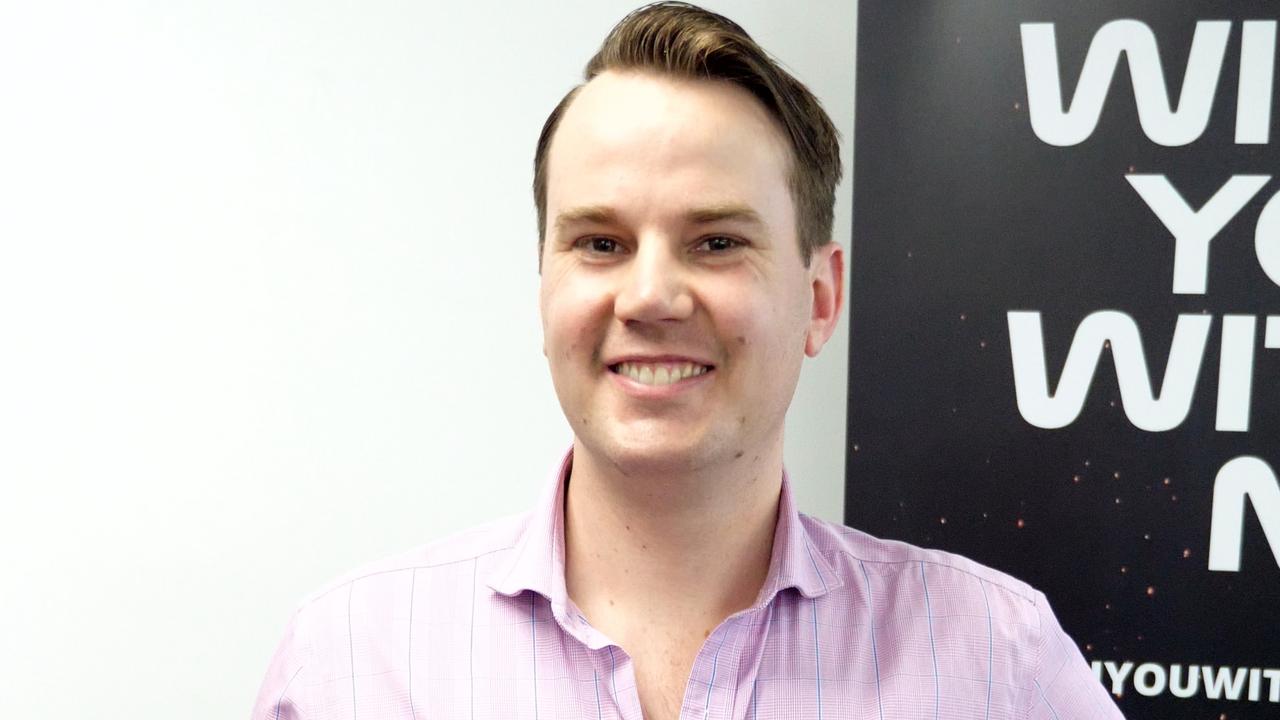What you should do instead of university
It’s the old mantra: go to uni, then get a good job. But increasingly Australians who take a different path are getting better results.
Jobs are changing so fast nowadays that heading to university for three years may no longer be the best way of getting work.
Young people are struggling to find jobs after they finish uni and a recent report from the Grattan Institute showed doing a degree could leave some people $30,000 worse off.
TAFE or other vocational education is often seen as the only alternative but technology firm WithYouWithMe (WYWM) hopes one day to provide another lifelong learning model.
Tom Larter, the chief executive officer of the Australia and New Zealand operation, said while education and learning from university could be valuable, it was more important to get into the workforce as quickly as possible.
“Jobs are changing so fast, you need to get into your first job and then use lifelong learning to build out your skills,” he said.
“We’ve got to speed up the rate that we learn new skills.”
A WYWM report recently found Australia’s education system had not been designed to respond to changes in the labour market and many students were enrolling in studies where job prospects were expected to be low.
“When up to 80 per cent of students will not find a job in their field after graduation, you have to wonder what exactly degrees are equipping them for,” WYWM co-founder Luke Rix said.
WYWM focuses its efforts on skilling people for jobs in the technology sector where there is increasing demand.
Under its model, the focus is on getting people into work as quickly as possible, in industries where there is increasing demand, through doing short online courses. Once they have a job they continue to do courses over two to three years.
“Find out what you’re good at, make yourself competitive quickly by learning in-demand skills, get into the workforce as fast as you can and then continually learn through your career as you go,” Mr Larter said.

At the moment WYWM works mainly with military veterans to help them get jobs after they retire from service, but non-military personnel can still do their testing and courses.
The program is free for veterans and this year 1178 have got jobs through the course.
Mr Larter told news.com.au that many of their clients don’t have a university degree.
“Our speciality is that we can take any veteran regardless of their background and show them how to reach their full potential,” he said.
“Even if they are a truck driver they don’t have to be a truck driver when they leave, we can upskill you in a high-demand job, particularly in tech, so you can have an ongoing career.”
Veterans first do testing, which others can also do for free online, to identify what they are good at.
“Job seekers often don’t put any data behind decisions they make about their career,” he said.
Another common mistake was not considering that they could be good at one of the many new emerging jobs.
“This holds them back but the testing opens their eyes,” Mr Larter said.
“We’ve had bus drivers and junior sailors with no experience in cybersecurity do a 12-week training course and get jobs.
“Those candidates had never considered, before receiving their match, that they could actually achieve this, and it’s really inspiring for them.”
The courses at the WYWM Academy take about 100 hours and generally take about six to 12 weeks to complete part-time. There is training for things like cybersecurity, software automation and data analytics.
Veterans can complete the courses for free but they cost between $3000 to $5000 for non-military jobseekers. Once candidates are trained up WYWM helps to match them with jobs at organisations they partner with.

Sydney resident Sheldon Rogers, 26, did not have a degree but got a job through WYWM after retiring from the Royal Australian Navy. He was previously a maritime warfare officer — responsible for navigation and he generally acted as the captain’s representatives on the bridge.
After serving for six years he had no idea what he was going to do after leaving the military but the testing at WYWM suggested he would be good at sales, something that surprised him.
“It was not something that I had thought about but when they explained the parameters the testing captured, what they had identified in my personality and my background and experience, it made a lot of sense in the end,” he said.
Mr Rogers worked as a recruitment provider earning $70,000 plus commission for 14 months but has recently moved on from the company. He is working at WYWM temporarily while he looks for another job.
He said he would probably stick with sales and recommended the WYWM program.
“It’s not so much for the content itself but more about the way it’s delivered,” he told news.com.au.
“You are made to feel genuinely engaged and cared for. You are being supported and they were a sounding board to bounce off my problems and issues. People here relate to my experiences, I think that’s the best part of the course.”
Mr Larter said WYWM eventually hoped to expand its services beyond its current focus on military personnel.
“We care about solving underemployment through helping people reach their potential and achieve better paying or new jobs.”

Continue the conversation @charischang2 | charis.chang@news.com.au




